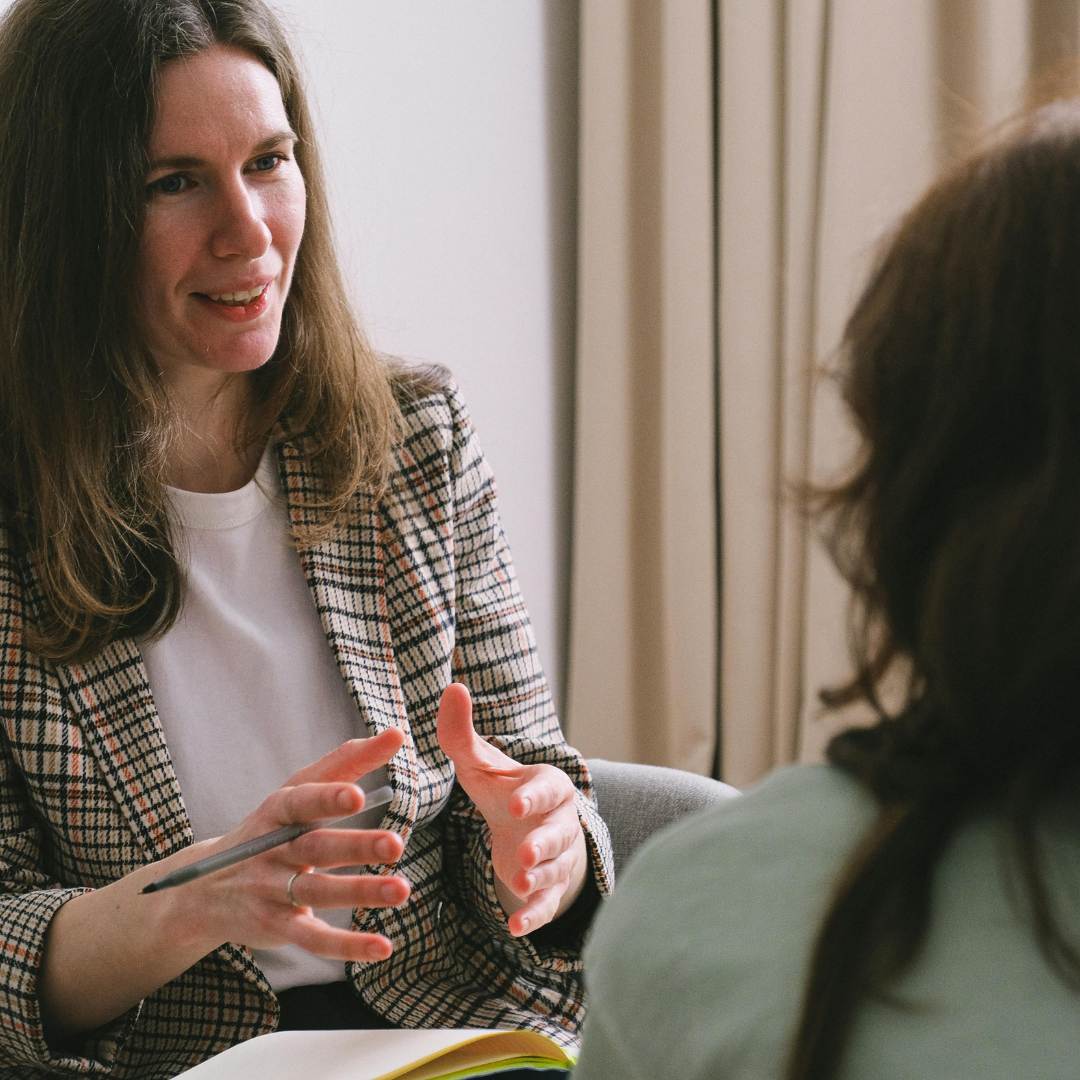
Discover Life Inc
Adding Life to your Life




“Yogasthaḥ kuru karmāṇi – Establish yourself in equanimity and then act.” — Bhagavad Gita
Performance & Happiness Counseling integrates emotional well-being with peak personal and professional performance. It empowers individuals to overcome internal and external challenges, fostering both success and fulfillment.
This counseling addresses stress, burnout, low self-esteem, and disconnection from purpose. By aligning inner values with outer goals, it enhances productivity, clarity, and satisfaction across personal, academic, and professional areas.
In today’s fast-paced world, chasing goals without nurturing inner happiness often leads to breakdowns, not breakthroughs.

The core aim of Performance & Happiness Counseling is to help individuals function at their best—consistently and joyfully. It creates a balance between doing and being, ensuring that performance is driven not by fear or pressure, but by passion, confidence, and clarity.
This counseling focuses on:




Performance & Happiness Counseling extends far beyond corporate or academic performance. It applies to:
It bridges the gap between achievement and fulfillment, which many silently struggle with.
The process is rooted in cognitive-behavioral therapy (CBT), positive psychology, mindfulness, and goal-setting techniques. Sessions are structured yet deeply personal. You can expect:
“Happiness is not something ready-made. It comes from your own actions.” – Dalai Lama



This counseling is ideal for:
Possible Outcomes (Without Guarantees)
“Man is made by his belief. As he believes, so he is.” – Bhagavad Gita
Last Word: Let performance rise from passion. Let happiness be your success story.
Explore how counseling can transform not just what you do, but how you feel while doing it.

“Behind every young child who believes in themselves is a parent who believed first.” – Matthew Jacobson

Work–Life Balance Counseling is a structured yet compassionate process that helps individuals align their professional responsibilities with personal well-being. It supports clients in finding equilibrium between career aspirations, family needs, personal health, relationships, and inner peace.
In today’s fast-paced world, the constant juggling act between deadlines and dinner tables, boardrooms and bedrooms, ambition and affection has left many exhausted, disconnected, and overwhelmed.
“There is more to life than increasing its speed.” – Mahatma Gandhi



The purpose of Work–Life Balance Counseling is not just time management—but life realignment. It offers individuals space to pause, reflect, and reprioritize. It enables you to live a life of achievement without sacrificing joy, relationships, or health.
Through introspection, strategies, and support, clients discover personalized ways to:
This counseling is incredibly versatile and relevant to:
“In the midst of movement and chaos, keep stillness inside of you.” – Deepak Chopra


Counseling Process
Work–Life Balance Counseling is customized, confidential, and goal-oriented. It typically includes:
“Manushyanam sahasreshu…” – Bhagavad Gita
Of thousands of men, only a few strive for self-mastery. This journey begins with awareness.


Potential Outcomes (No Promises)
Work–Life Balance Counseling is customized, confidential, and goal-oriented. It typically includes:
Last Word: Let balance become your superpower.
Work–Life Balance Counseling helps you breathe between the lines of your calendar—and thrive in both your roles and relationships.
“You yourself, as much as anybody in the entire universe, deserve your love and affection.” – Buddha

Understanding Self-Esteem & Personality Development Counseling
Counseling for Self-Esteem and Personality Development is a guided, empowering process that helps individuals discover their intrinsic worth, enhance their confidence, and develop traits that support success, emotional stability, and meaningful relationships.
This counseling service is designed for those struggling with low self-worth, social anxiety, negative self-talk, or a lack of identity clarity—offering them the space, support, and structure to transform from within.
“You are not a drop in the ocean. You are the entire ocean in a drop.” – Rumi
Common Challenges People Face
Such challenges can hinder career growth, affect relationships, and reduce overall life satisfaction. Left unaddressed, they often lead to stress, anxiety, and even depression.

The purpose is to empower individuals to:
Recognize and honor their unique strengths
Heal emotional wounds rooted in childhood or past experiences
Learn emotional intelligence and communication skills
Develop assertiveness, resilience, and inner confidence
Embrace authenticity while becoming socially and professionally effective
“A person often becomes what they believe themselves to be.” – Mahatma Gandhi



This service is helpful for:
“Karmanye vadhikaraste ma phaleshu kadachana…” – Bhagavad Gita
(Do your duty without attachment to the outcome. True self-esteem lies in the journey, not just the result.)


Clients often emerge more grounded, graceful, and confident, with a greater sense of purpose and joy in everyday living.
Closing Thought
“Confidence is not ‘they will like me’. Confidence is ‘I’ll be fine even if they don’t.’” – Christina Grimmie
True confidence doesn’t come from comparison, but from compassion toward oneself. Through expert Self-Esteem & Personality Development Counseling, you don’t just improve how you look to the world—you begin to love what you see in the mirror.
“Peace is not the absence of conflict, but the ability to handle conflict by peaceful means.” — Ronald Reagan

Workplace conflict counseling is a structured, solution-oriented process aimed at resolving interpersonal or organizational conflicts that arise in professional environments. Whether it’s a misunderstanding between colleagues, friction between an employee and supervisor, or team dysfunction, workplace counseling helps uncover underlying issues, fosters emotional intelligence, and promotes healthier communication.
In today’s fast-paced corporate culture, stress, competition, role ambiguity, and value clashes often give rise to unresolved tensions. If left unattended, these conflicts can lead to poor performance, disengagement, mental fatigue, or even attrition.

“Wherever there is human interaction, there is potential for conflict.”
From small startups to multinational corporations, conflicts are natural but can escalate quickly without proper handling. Common triggers include:
Even remote working and hybrid models have introduced unique challenges, with digital fatigue, misinterpretations via emails, and lack of face-to-face resolution mechanisms.



Workplace conflict counseling isn’t about taking sides. Its purpose is to:
As the Bhagavad Gita says:
“Uddhared ātmanātmānaṁ na ātmanam avasādayet” – Lift yourself by yourself, do not degrade yourself.
—This holds true even in conflicts; inner clarity can transform outer dynamics.
Counseling for workplace conflicts can be highly effective for:
Employees at all levels (entry-level to executive)
Managers and team leaders facing team resistance
HR professionals mediating disputes
Startups and founders handling people conflicts
Family-run businesses dealing with generational or sibling friction
Remote teams experiencing trust and communication gaps


The counseling process involves:
“Between stimulus and response, there is a space. In that space is our power to choose our response.” —Viktor E. Frankl
While counseling is a process and not a magic fix, potential outcomes may include:
“Peace begins with a smile.” —Mother Teresa

“Money is a good servant, but a bad master.” – Francis Bacon

Financial stress counseling is a professional, solution-focused approach that helps individuals and families cope with emotional and psychological distress caused by money-related worries. From debt burdens and sudden job loss to financial insecurity in retirement or during major life transitions—financial anxiety can silently erode health, relationships, and confidence.
Counseling for financial stress is not financial advising—it’s emotional and behavioral support that equips you to build resilience, regain focus, and take empowered action toward financial well-being.

“A big part of financial freedom is having your heart and mind free from worry about the what-ifs of life.” – Suze Orman
Some common triggers include:
When money becomes a daily source of worry, it leads to anxiety, depression, insomnia, marital conflict, low self-esteem, and even burnout.


The primary goal is not just to “solve” money problems, but to help you:
Counseling may also include guided exploration of alternative income sources, passive income ideas, money management habits, and financial literacy awareness—especially helpful for young adults, freelancers, single parents, and retirees.
The Counseling Process: What to Expect
Financial stress counseling is typically a short- to mid-term intervention that includes:
Initial Assessment: Understanding your emotional responses, financial history, current stressors, and goals.
“He who buys what he doesn’t need, steals from himself.” – Swedish Proverb


Anyone feeling financially overwhelmed, including:
Even financially stable people can suffer from money anxiety, perfectionism, or guilt around spending or saving.
Likely Outcomes of Counseling (No Promises)
While every journey is unique, clients often experience:
“Do not save what is left after spending, but spend what is left after saving.” – Warren Buffett
While every journey is unique, clients often experience:
“Do not save what is left after spending, but spend what is left after saving.” – Warren Buffett


A Gentle Reminder!!
Wanting more money is not wrong. It’s human to desire comfort, security, and abundance. But when that desire turns into constant fear or stress, it’s time to pause, reflect, and realign—with professional support if needed.
“As is your desire, so is your will. As is your will, so is your deed. As is your deed, so is your destiny.” – The Upanishads
“Life isn’t about finding yourself. It’s about creating yourself.” — George Bernard Shaw

Mid-life is often seen as a pivotal phase—a time when many face unexpected emotional, physical, and financial challenges. Commonly referred to as a mid-life crisis, this period can trigger feelings of confusion, dissatisfaction, and anxiety about the future. If you’re navigating these turbulent waters, counseling for mid-life crisis can be a powerful resource to regain clarity, purpose, and peace.
A mid-life crisis typically occurs between the ages of 40 to 60 and involves profound self-reflection and questioning of life’s achievements, goals, and personal identity. This phase may be marked by:
Counseling for mid-life crisis focuses on helping individuals understand and manage these complex emotions, guiding them to make meaningful changes or find acceptance.

This phase can bring diverse challenges, including:
Health concerns: Physical changes, chronic illnesses, or decreased vitality may lead to frustration or fear.
Career plateaus: Many individuals feel they haven’t reached their professional aspirations, triggering regret or anxiety.
Financial pressures: Insufficient savings or debt can create stress, especially with responsibilities like children’s education or aging parents.
Relationship shifts: Marital tensions, empty nests, or caregiving roles can cause emotional strain.
Existential questions: Searching for deeper meaning, spiritual doubts, or fear of unfulfilled dreams often emerge.
“In the middle of every difficulty lies opportunity.” — Albert Einstein



The aim of counseling during mid-life is not to “fix” all problems overnight but to provide support, perspective, and tools for personal growth. It empowers individuals to:
Mid-life counseling also often integrates aspects of career coaching, financial counseling, and family therapy depending on individual needs.

This process respects your unique journey and pace, fostering empowerment rather than pressure.


Mid-life crisis counseling is valuable for:
While every person’s journey is unique, many find that counseling can help them:
“The best way to predict the future is to create it.” — Peter Drucker

Many people view mid-life as a crisis, but it can also be a profound opportunity to reshape your story. Drawing on wisdom from Indian philosophy and global thinkers alike, this phase invites you to:
“You are never too old to set another goal or to dream a new dream.” — C.S. Lewis
You don’t have to face the mid-life crisis alone. Professional counseling offers a compassionate, safe, and effective way to explore your feelings, embrace change, and unlock new possibilities. Reach out today to start your journey toward renewed vitality and purpose.



Copyright © 2025 Discover Life Inc All rights reserved.